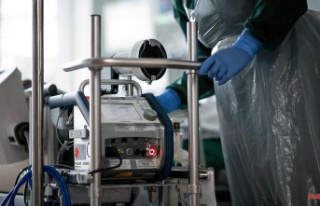Just as Boris Johnson was giving his closing speech in Parliament, my new German passport reached me. Johnson said goodbye, among other things, with the words "We have rebuilt our democracy and restored our independence". From my point of view, he could hardly have phrased it more cynically. Boris Johnson, Brexit and everything connected with it are the reason why I became German again.
Anyone who knows me well knows that I was never particularly proud of being German. For a long time, one of my research topics was medicine in the Third Reich, and it was this topic that alienated me from Germany. So it felt totally right to be British. In fact, I was proud of it – the UK had long since become my adopted country in 1999, and it was a lifelong decision. However, the current circumstances thwarted this plan.
My “re-Germanization” started over two years ago – I went to the German Embassy in London and asked to renew my passport, which had expired over 20 years ago. The passport was confiscated and I was told bluntly that I was no longer German. If I wanted to become German, the official explained to me, I would have to start all over again. I should have applied for dual citizenship in 1999 when I took British citizenship. But of course I didn't know that at the time.
What followed was a lengthy process that required me to produce a bizarre set of documents. I wouldn't have been surprised if I'd been asked for my grandmother's fingerprints. The Germans are apparently still the world champions of bureaucracy. But why did I go through all this effort in the first place?
Never in my wildest dreams did I think Britain would go into collective madness and leave the EU. After the 2016 referendum, I was still convinced that this act of self-mutilation would be prevented. But then it happened, not least because of the many lies of the Tories and the incredible incompetence of Jeremy Corbyn and his supporters.
Brexit in itself would have been bad enough, but the way it changed the atmosphere in Britain was even worse. With the Tories' right wing in power, every nitwit felt entitled to let out their xenophobic outpourings as they pleased. Lies and corruption in politics became the new norm as Britain slowly but surely became a banana republic.
A lot of what made me want to be British was gone in a matter of months. Tolerance, understatement, modesty, common sense, all of that was hardly noticeable anymore. In other words, it was time to reconsider my position.
From then on, my wife and I spent more time in Brittany, where she was born. Our French friends invariably agreed that the UK had lost its mind and had become Europe's laughingstock. Finally, the final step was to regain German citizenship. Now that everything is done, I'm happy and sad at the same time. Happy to be a member of the EU again and sad to see what has become of the country I loved so much.
The optimist in me still hopes that the British will finally come to their senses. However, awakening will be difficult. I will not turn my back on the country completely for the time being, but will do my modest part to promote this development. And in the way I have always considered it my duty as a scientist: by exposing nonsense as nonsense and fighting populism with common sense and rational thinking.
Edzard Ernst, born in Wiesbaden in 1948, was appointed the first professor of complementary medicine at the University of Exeter in 1993. He has published more than 50 books and written for The Guardian.












